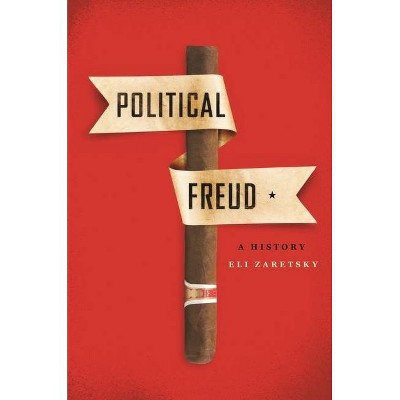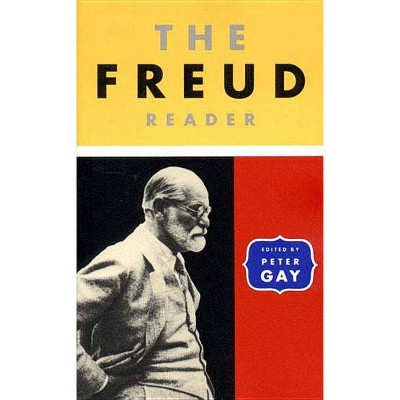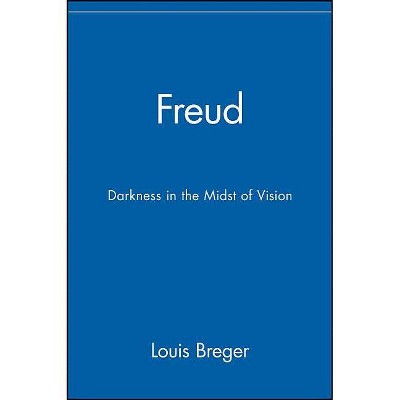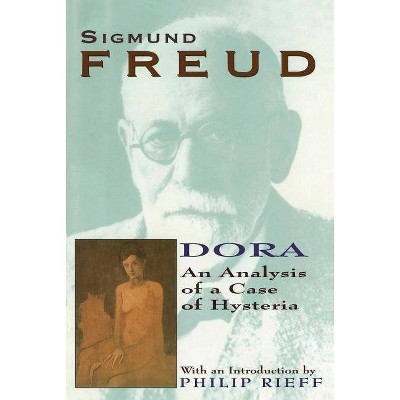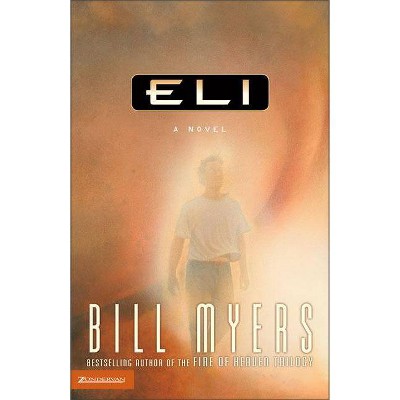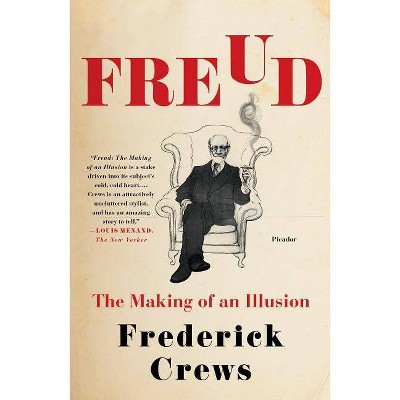Political Freud - by Eli Zaretsky (Paperback)
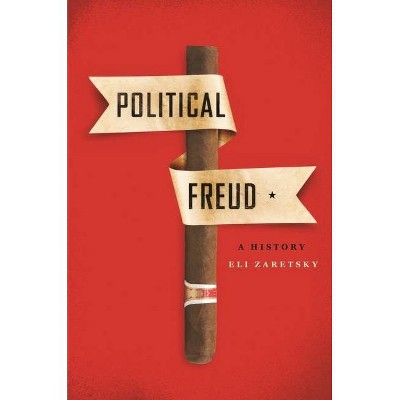
Similar Products
Products of same category from the store
AllProduct info
<p/><br></br><p><b> About the Book </b></p></br></br><i>Political Freud</i> considers how twentieth century radicals, activists, and thinkers used Freudian thought to understand the political developments of their times. Eli Zaretsky shows how important political readings of Freud were to the theory of fascism, African American radical thought, and feminism and gay liberation.<p/><br></br><p><b> Book Synopsis </b></p></br></br><p>In this masterful history, Eli Zaretsky reveals the power of Freudian thought to illuminate the great political conflicts of the twentieth century. Developing an original concept of "political Freudianism," he shows how twentieth-century radicals, activists, and intellectuals used psychoanalytic ideas to probe consumer capitalism, racial violence, anti-Semitism, and patriarchy. He also underscores the continuing influence and critical potential of those ideas in the transformed landscape of the present. Zaretsky's conception of political Freudianism unites the two overarching themes of the last century--totalitarianism and consumerism--in a single framework. He finds that theories of mass psychology and the unconscious were central to the study of fascism and the Holocaust; to African American radical thought, particularly the struggle to overcome the legacy of slavery; to the rebellions of the 1960s; and to the feminism and gay liberation movements of the 1970s. Nor did the influence of political Freud end when the era of Freud bashing began. Rather, Zaretsky proves that political Freudianism is alive today in cultural studies, the study of memory, theories of trauma, postcolonial thought, film, media and computer studies, evolutionary theory and even economics.</p><p/><br></br><p><b> Review Quotes </b></p></br></br><br>A fascinating and compelling account of the cultural and philosophical impact of psychoanalysis on the 20th-century political scene.... [<i>Political Freud</i>] reveals just how deeply it is woven into the US political fabric, both conservative and progressive. Indispensable for historians of 20th-century thought and politics.--Choice<br><br>The book is a resource for understanding what went wrong and how to create a better future.--Psychohistory News<br><br>Timely and needed.--Perspectives on Politics<br><br>[A] compelling and valuable examination.... Zaretsky offers a very powerful and broad account of how psychoanalysis and twentieth-century culture emerged together, tested each other critically, and shifted in response to the pressures and forces that each aroused.--Stephen Frosh "American Imago "<br><br>[Zaretsky] provides a valuable context to help us grapple with the ways historical changes have impacted Freudianism with an eye to recuperating the best of an inwardly revolutionary movement.--Dan Dervin "The Journal of Psychohistory "<br><br>A sustained and convincing plea by the historian Eli Zaretsky for the continued relevance of Freud and Freudianism in the early twenty-first-century world.--Paul Lerner "Times Literary Supplement "<br><br>In this nuanced, historically attuned, and deeply felt consideration of the conflicting political implications of psychoanalysis, Eli Zaretsky traces the ways in which Freud's theories were employed to address the most pressing issues of the past century: war, racism, the Holocaust, identity politics, and the never-ending crisis of capitalism. He shows how it has underpinned conformity as well as fueled critique. Against the current of our Freud-bashing times, Zaretsky makes a powerful case for his continuing relevance as an interpreter of both our political dreams and worst nightmares.--Martin Jay, University of California, Berkeley<br><br>Much of twentieth-century political thought, ideologies, and movements cannot be understood without grasping the influence of psychoanalysis. Critical theory, postcolonial understandings of race, interpretations of the Holocaust and war, feminism, and the New Left all drew on Freud in both high theory and everyday understanding. In Political Freud, Zaretsky narrates the twentieth-century story with verve and insight and shows how the influences continue into the twenty-first.--Craig Calhoun, director, London School of Economics and Political Science<br><br>Readers will emerge from <i>Political Freud</i> with a clearer sense of what is lost and must be recovered in the much-maligned psychoanalytic tradition. This brilliant riposte to Freud-bashers ought to be, as they say, on every shelf.--Kurt Jacobsen "Logos: A Journal of Modern Society & Culture "<br><br>Richly researched.... and elegantly argued.--Elizabeth Ann Danto "Contemporary Psychoanalysis "<br><br>Zaretsky is one of the best historians of Freudian thought. Once again he shows the social and political impact of psychoanalysis and the central role it plays in the second half of the twentieth century, in the feminist movement, the struggle of homosexuals, antiracism, and criticism of colonialism and totalitarianism. At the heart of this approach, Zaretsky analyzes Freud's relationship to his Jewishness. A remarkable book.--Elisabeth Roudinesco, author of <i>Philosophy in Turbulent Times: Canguilhem, Sartre, Foucault, Althusser, Deleuze, Derrida</i><br><br>Zaretsky offers a fascinating analysis of the inherent political ambivalence of psychoanalysis and its intertwined conservative and utopian strands. His book is a deeply interesting and important contribution to debates about the relationship between psychoanalysis, critical theory, and politics.--Amy R. Allen, author of <i>The End of Progress: Decolonizing the Normative Foundations of Critical Theory</i><br><p/><br></br><p><b> About the Author </b></p></br></br>Eli Zaretsky is a professor of history at the New School for Social Research. His previous works include <i>Why America Needs a Left: A Historical Argument</i>;<i> Secrets of the Soul: A Social and Cultural History of Psychoanalysis</i>; and <i>Capitalism, the Family, and Personal Life</i>.
Price History
Price Archive shows prices from various stores, lets you see history and find the cheapest. There is no actual sale on the website. For all support, inquiry and suggestion messagescommunication@pricearchive.us
